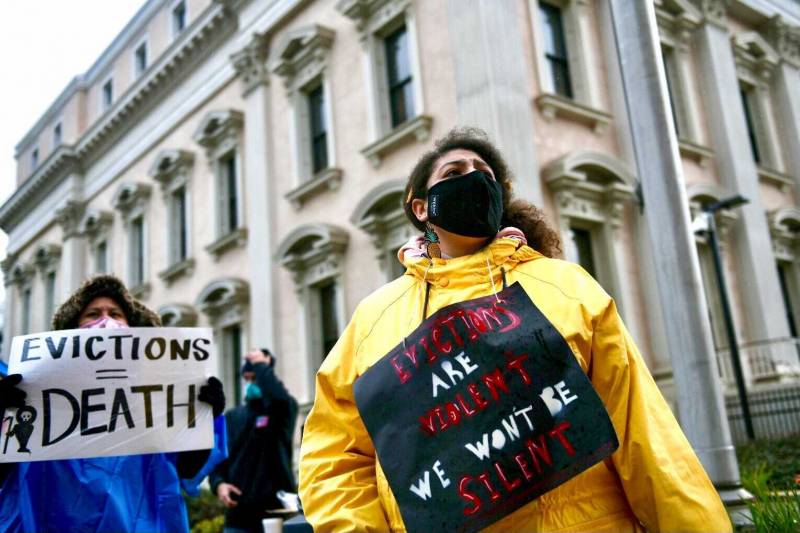The eviction moratorium will be the third one in the state so far. Current protections are scheduled to expire on Wednesday.
The new agreement will extend the eviction moratorium through the end of September and pledges to pay off all unpaid rent from April 2020 through Sept. 30 of this year for people who earn 80% or less of their area’s median income and have been affected by the pandemic.
No one knows exactly how many people will qualify and how much it will cost. But the state has $5.2 billion to spend on back rents, enough to provide $10,400 each to a half-million tenants, all of it coming from the federal government.
“I think that everyone is breathing a sigh of relief,” said Madeline Howard, senior attorney for the Western Center on Law and Poverty.
Newsom’s administration believes the pot of money is more than enough to pay off rental debts for everyone eligible. Another $2 billion in state money will cover people’s unpaid utility bills.
The proposal, which will be voted on in the Legislature next week, also gives tenants more time to apply for assistance after a landlord tries to evict them while also masking their credit and rental history so those debts won’t show up and prevent them from getting future housing.
People who are not eligible for the money can still qualify for the eviction ban if they pay at least 25% of what they owe by Sept 30. Since those tenants still will be behind on rent, landlords can take them to court to recover what’s left. But landlords can’t evict them for it.
“We want to make sure we’re avoiding those evictions. And we also want to make sure that Californians are not saddled with this rental debt moving into the future,” said Assemblymember David Chiu, D-San Francisco, who also chairs the Assembly’s housing committee.


